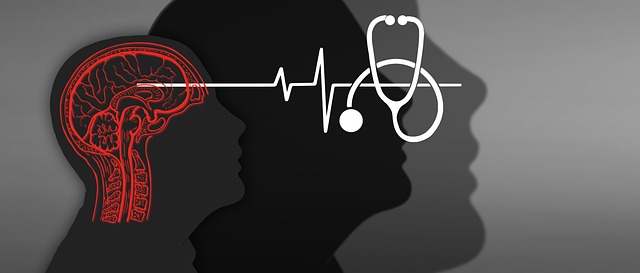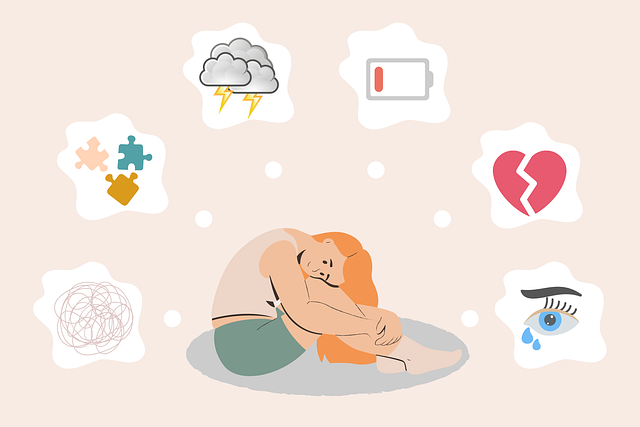Stress in children, driven by academic pressures, peer relationships, and family dynamics, can have lasting impacts on mental wellness. Early identification and intervention are crucial. Tailored therapy like biofeedback training, mental wellness journaling, podcasts, and self-awareness exercises effectively manage stress, enhancing emotional regulation, cognitive abilities, and overall well-being. Biofeedback, a groundbreaking therapy, teaches children to regulate physiological responses to stress, building resilience and conflict resolution skills. Integrating therapy with creative platforms normalizes conversations around stress and mental health, making support more engaging and inclusive.
Stress reduction is a vital aspect of holistic child development, yet navigating and alleviating stress in children can be complex. This article explores effective strategies to help young ones manage stress, focusing on biofeedback as a revolutionary approach. We delve into common triggers and impacts, providing insights into the mind-body connection. Furthermore, we discuss therapeutic interventions tailored for kids, emphasizing long-term stress management through evidence-based practices, particularly highlighting the benefits of biofeedback therapy.
- Understanding Stress in Children: Unveiling Common Triggers and Impacts
- Biofeedback as a Revolutionary Approach: Techniques and Benefits
- Therapeutic Interventions for Effective Long-Term Stress Management in Kids
Understanding Stress in Children: Unveiling Common Triggers and Impacts

Stress in children is a growing concern, often manifesting from various triggers such as academic pressures, peer relationships, and family dynamics. These early experiences can have lasting effects on their mental wellness, making it crucial to identify and address stress at a young age. Common stressors include demands for excellent academic performance, social bullying, or even excessive screen time. The impact of chronic stress in children can be profound, affecting their emotional regulation, cognitive abilities, and overall well-being.
One effective approach to managing childhood stress is through therapy tailored for this demographic, such as biofeedback training. This method empowers children with self-awareness exercises, helping them recognize and control physical responses to stressful situations. Additionally, encouraging mental wellness journaling can offer a creative outlet for processing emotions and experiences. The Mental Wellness Podcast Series and Self-Awareness Exercises can also play a significant role in production guidance, promoting healthy coping strategies and enhancing overall resilience.
Biofeedback as a Revolutionary Approach: Techniques and Benefits

Biofeedback stands out as a revolutionary approach to stress reduction, offering individuals—including children—a powerful tool for managing their mental wellness. This therapy isn’t about merely combating symptoms; it empowers clients by teaching them how they respond to stress physiologically. Through various techniques like electrical skin conductance and heart rate monitoring, biofeedback provides real-time data on bodily functions. This awareness is transformative, enabling children (and adults) to learn self-regulation skills that can be life-changing.
The benefits of biofeedback extend far beyond stress reduction. It’s a valuable component in the Mental Wellness Podcast Series Production and Stress Management Workshops Organization, fostering resilience building within individuals. By understanding their body’s reactions, they can cultivate healthier coping mechanisms, leading to improved mental health and overall well-being. This science-backed method is gaining recognition as an effective therapy for children seeking to navigate life’s challenges with greater ease.
Therapeutic Interventions for Effective Long-Term Stress Management in Kids

Therapeutic interventions play a pivotal role in equipping children with effective long-term stress management skills. Beyond traditional talk therapy, innovative approaches like biofeedback have proven highly beneficial. Biofeedback teaches kids how to consciously regulate their bodily responses to stressful situations, empowering them to gain control over heart rate, breathing, and muscle tension. This skill set not only fosters resilience but also acts as a powerful tool for conflict resolution techniques, enabling younger individuals to navigate challenging interactions with greater composure.
Integrating therapy for children often involves addressing underlying mental health concerns and reducing the stigma associated with mental illness. Mental wellness podcast series production has emerged as a popular medium, offering accessible resources that normalize conversations around stress and mental health. By combining direct therapy with creative platforms like podcasts, mental wellness support becomes more engaging and inclusive, further contributing to effective long-term stress management in children.
In conclusion, understanding and addressing stress in children is paramount for their overall well-being. By recognizing common triggers and their impacts, parents and caregivers can employ effective strategies such as biofeedback and therapeutic interventions to help kids develop healthy coping mechanisms. Integrating these innovative approaches, like biofeedback therapy, offers a revolutionary way to manage stress, ensuring children thrive both emotionally and physically.








